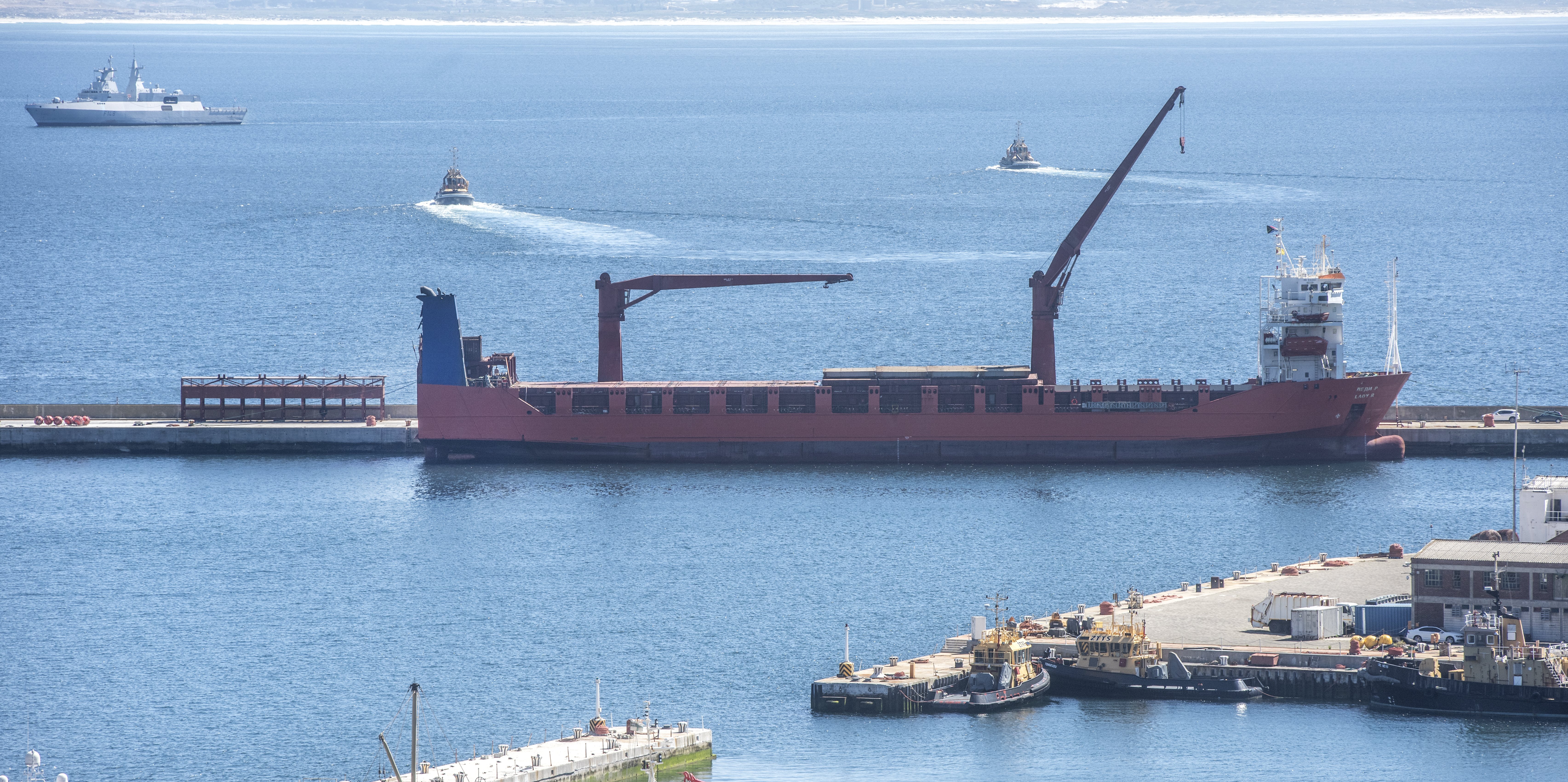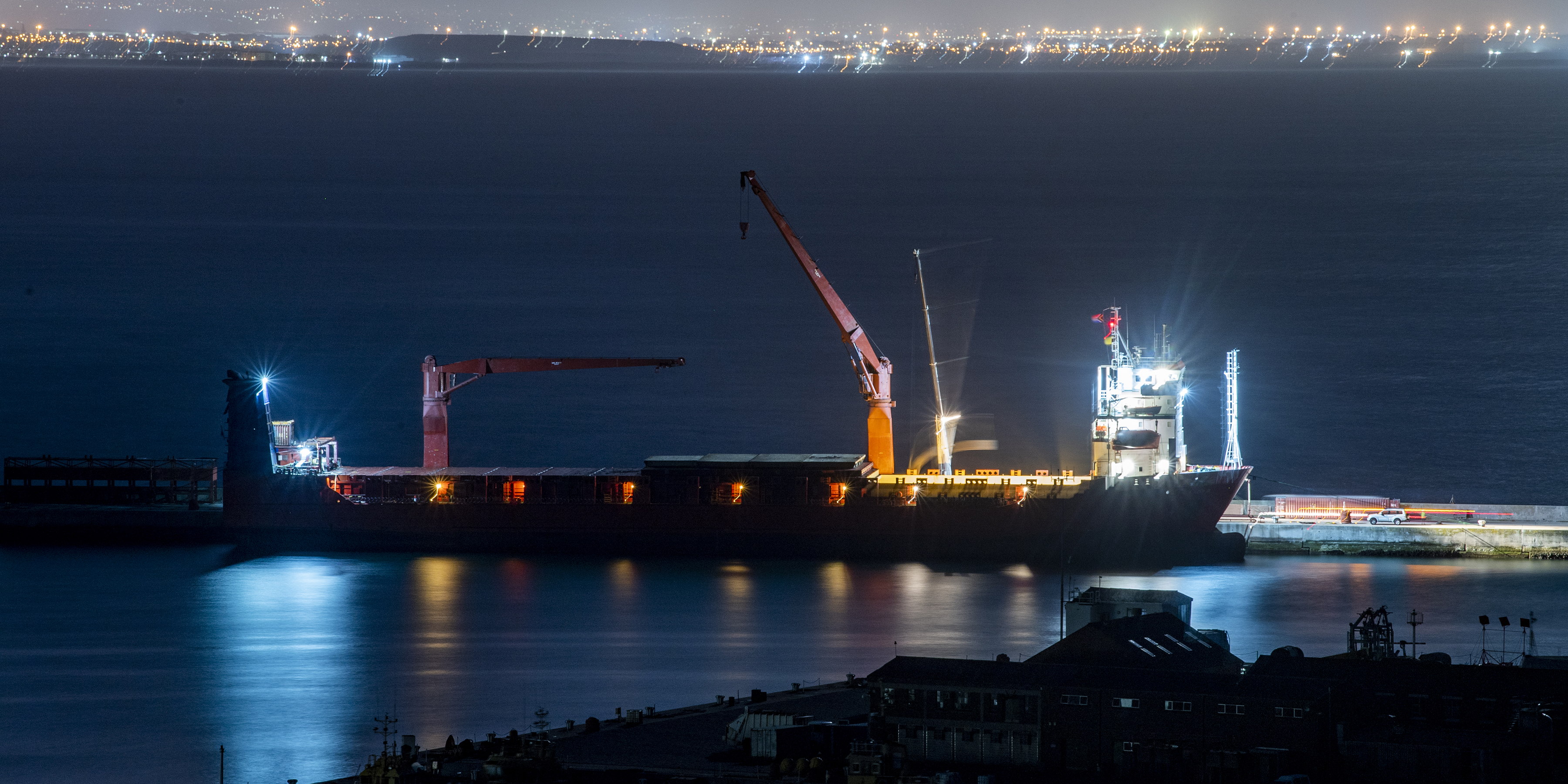The South African government laboured for eight months to answer a simple yes or no question: whether weapons bound for Russia were loaded onto the sanctioned Lady R cargo ship when it berthed in the Simon’s Town naval dockyard in December 2022.
The conclusion of the Mojapelo Commission of Inquiry, according to the news outlet that it was leaked to last weekend, was that the Russian ship with the suggestive name of Lady R had loaded food, not weapons.
Read more in Daily Maverick: ‘Aggressive push’ to expel US ambassador from SA as government data shows no weapons exports to Russia
If that is true, then Reuben Brigety, the US Ambassador to South Africa who said he would “bet his life” that a shipment of weapons was loaded, has some explaining to do.
“If this is indeed what happened, and I hope it is, it’s a relief,” said Darren Olivier, a director of the African Defence Review. “But there are still too many unanswered questions, not least of all why it took eight months to provide this information. More of the actual investigation should be made public.”
Though there’s no guarantee that whatever is released will be convincing, the Mojapelo Inquiry is one of a trio of actions that could stave off the possibility of South Africa losing tariff-free access to the US market under Agoa.
The other tasks are dissuading Russian president Vladimir Putin from coming in person to South Africa for the BRICS summit later this month and President Cyril Ramaphosa’s direct involvement in the nascent peace process between Ukraine and Russia.
Read more in Daily Maverick: Putin to stay away from BRICS Summit in Joburg, will send Lavrov instead
But even all that is not necessarily going to stop the slide in relations with Washington that have been going slowly downhill for more than a decade. Washington takes a long time to change its mind — and even longer to change it back again.
Where once there was bipartisan support in the US for South Africa and the party of Nelson Mandela, there is now bipartisan disappointment and distrust.
Since Mandela’s presidency — when South Africa enjoyed support across the board in Washington — the ideological divide has grown wider with each succeeding president.
The perception of the ANC as an organisation steeped in anti-Americanism and pro-Russian double speak has stuck.
While it is increasingly unlikely that South Africa will lose its Agoa privileges, there is a long line of friendlier African investment destinations in the US now — Angola, Zambia, Tanzania, Ghana, even Nigeria. An influential Senator such as Chris Coons of Delaware, for instance, speaks Kiswahili and is focused on Kenya. There are few South Africa champions left in Washington.
And yet South Africa remains the US’s largest trading partner in Africa and with at least 600 US businesses in operation, the economies are already well integrated.
 Russian ro-ro cargo ship, Lady R docked inside Simonstown Naval Base. (Photo: Supplied)
Russian ro-ro cargo ship, Lady R docked inside Simonstown Naval Base. (Photo: Supplied)
Whatever you might think of the US, it would be neglectful to ignore the size of the market and the potential for more two-way trade, especially in the innovative high-tech areas from AI to robotics to healthcare to green energy.
Some of the most interesting technologies are being developed in the Midwest — yet South Africa closed its consulate in Chicago in September 2021.
South Africa needs a fundamentally new, clear-headed and less ideological way of thinking about engagement with the US.
The real mission should be building relationships that can open new markets for manufactured and agricultural products and attract capital and technology for growth and for the benefit of South African businesses and workers.
The departure of the South African Ambassador to Washington, Nomaindiya Mfeketo, this month, offers the opportunity for a re-evaluation of what South Africa wants from the US. Hopefully, Dirco will not just recycle another ex-politician, but find someone of the highest calibre who can meet this challenge at a difficult time.
The diplomatic mission requires well-thought-out strategy and tactics. It needs to understand the new world geopolitics and current political, trade, and economic situation in the US.
Strategy-making must involve the whole organisation, including the embassy and consulates. Washington is a bilateral mission dealing with many multilateral issues: health, climate change, and (soon) artificial intelligence.
There is a large and growing South African expatriate community in the US, some of them with connections to the highest offices. Other countries use their natural ambassadors, but they have seldom been utilised in DC.
There are South African golfers, tennis players, academics, people in finance and tech, celebrities like Trevor Noah and the opera singer Pretty Yende (Elon Musk’s tweet about white genocide makes one doubt whether he would ever promote South Africa).
South Africa’s hosting the BRICS summit is seen by some in DC as an attempt to diminish the West, a view that aligns with some of the more enthusiastic BRICS commentators.
Read more in Daily Maverick: Extra BRICS members should be about more than the ‘West versus the Rest’
And yet International Relations and Cooperation Minister Naledi Pandor has been careful to reassure that there is no intention to build an “anti-West” bloc. The counterview in Washington is that if it's not meant to be against us, then what is it for?
Perhaps the best answer comes from former Deputy Finance Minister and Chairperson of MTN Mcebisi Jonas who says the reason why South Africa is multi-aligned and should be able to straddle multiple worlds is because of “the duality of our nature as both a democracy with an open free market economy as well as a developing nation, with immense poverty and inequality.”
And that, on a fragile continent, is what makes South Africa an indispensable partner. DM
Phillip Van Niekerk is the editor of Africa Unscrambled, a newsletter covering the continent in a way you won’t read anywhere else. Get unscrambled by signing up right here.




 The Russian cargo ship Lady R docked inside Simon's Town Naval Base. (Photo: Supplied)
The Russian cargo ship Lady R docked inside Simon's Town Naval Base. (Photo: Supplied)